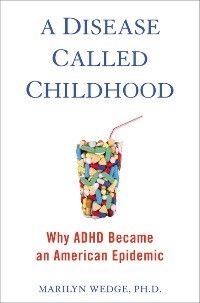When I first heard that a neurologist had written a book called ADHD Does Not Exist, I felt encouraged. However, after reading yesterday's article inThe New Republic by the books's author, Dr. Rchard Saul, I realized that my feeling of encouragement was premature.
Saul rightly points out that no biological cause for ADHD has been isolated, despite decades of research, and that stimulant drugs for children have their downsides and are in general over-prescribed. However, in the case study Saul describes in The New Republic, the diagnosis and the solution he proposes for a young patient are much worse than the usual stimulant "solution" for ADHD.
Saul tells the story of one of his patients, a 6th grader named William. William was bright but forgetful, having some run-of-the-mill boyhood problems like forgetting to bring home his homework assignments and having the occasional temper tantrum. Frustrated at their son's "underperformance" at school, his parents sought medication solutions for William. They took him to one psychiatrist after another, who prescribed various stimulants and antidepressants for the boy without recommending any form of psychotherapy.
His parents noticed that the medications seemed to make William worse. Instead of looking for causes in William's social environment, or trying family therapy, school interventions, parenting classes, or tutoring, his parents sought out another medical solution--with much more serious consequences.
Saul diagnosed William with bipolar disorder, a diagnosis that has never been applicable to children under eighteen in any edition of the DSM. The FDA has not approved for children any drugs that are approved to treat bipolar disorder in adults. Some psychiatrists, nonetheless, continue to diagnose bipolar disorder in children and prescribe powerful antipsychotic drugs for them "off label."

In William's case, the drug that worked was Lithium. According to the FDA, Lithium is indicated in the treatment of manic episodes of bipolar disorder in adults. Nothing in Saul's description of William suggests that he had anything like a manic episode.
But William's symptoms improved with the Lithium. He remembered to bring home his backpack most of the time and his school work-related tantrums stopped. Saul told William's parents that since bipolar disorder is a chronic illness, he would probably need to take Lithium for the rest of his life. Because Lithium helped William, Saul deduced that the cause of William's problems was the condition for which the drug is usually prescribed: adult bipolar disorder. In using this chain of reasoning, he was making the same mistake as doctors who deduce that a child has ADHD because stimulant drugs help the child's symptoms.
Stimulant drugs like Adderall were used by German pilots during the Blitzkrieg in World War II, and later by English and American bomber pilots. Because stimulant drugs were effective in helping these pilots stay alert and concentrate on long-haul missions, we cannot assume that all of them, or even any of them, had attention deficit hyperactivity disorder.
In the same way, we cannot assume that because Lithium helps a boy to remember to bring home his backpack and behave better at school, the boy therefore must therefore be psychotic. Bipolar disorder is simply a new name for manic-depressive psychosis, which many doctors now believe does not even exist in children.
Finally, Lithium is an toxic drug with extremely dangerous side effects like kidney damage. The FDA page on Lithium bears the warning: "Safety and effectiveness in pediatric patients under 12 years of age have not been determined; its use in these patients is not recommended." It is shocking that a doctor would prescribe such a drug for a boy whose problems could have easily been resolved with family and/or school interventions.
Copyright © Marilyn Wedge, Ph.D.
Marilyn Wedge is the author of Pills are not for Preschoolers: A Drug-free approach for Troubled Kids

Her latest book about the ADHD epidemic in America is A Disease called Childhood


